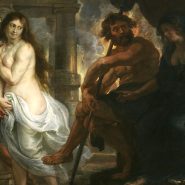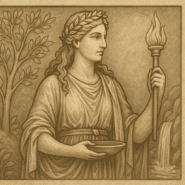Our Editorial Mission
RomanMythology.com is dedicated to preserving and interpreting the myths, legends, and cultural heritage of ancient Rome. Our editorial mission is to present this material with historical accuracy, narrative clarity, and educational value. Every article is written or curated with respect for classical sources and modern scholarship, making the site a reliable reference for students, educators, and enthusiasts of ancient history.
How Our Content Is Created
All articles on RomanMythology.com are produced through a combination of original writing, scholarly research, and adaptation of verified public-domain materials. Each piece follows a consistent editorial framework designed to balance readability with factual integrity:
- Research: Articles draw primarily from classical works such as Ovid’s Metamorphoses, Virgil’s Aeneid, and Livy’s Ab Urbe Condita, as well as reputable academic and reference sources.
- Adaptation: Public-domain materials from resources such as Project Gutenberg and Wikisource may be adapted or rephrased to ensure clarity and accessibility.
- Editorial Review: Each article is reviewed for coherence, tone, and accuracy before publication. Revisions are periodically made to reflect improved research or updated interpretations.
- Formatting: Every article follows a standardized structure — overview, origins, symbolism, moral meaning, and legacy — to maintain consistency and educational value across the site.
Accuracy and Objectivity
RomanMythology.com strives for factual accuracy and impartial representation of Roman myths and religious traditions. While interpretations may vary among scholars, we aim to present well-supported perspectives and to acknowledge alternate views when relevant. Content updates are made whenever significant new information or corrections are warranted.
Public-Domain Attribution
Many classical texts and translations referenced on this website are sourced from the public domain. Unless otherwise noted, materials are adapted from trusted repositories such as Project Gutenberg, Wikisource, or similar archives. These works are freely available for educational use, and all modern commentary or contextualization provided here is original to RomanMythology.com.
Corrections and Feedback
We welcome reader feedback and scholarly input. If you believe an article contains an error, unclear citation, or missing attribution, please contact us so we can investigate and make any necessary corrections. Accuracy and transparency are central to our editorial philosophy.
Contact the Editorial Team
For editorial inquiries, attributions, or content suggestions, please reach us at:
Email: editor@romanmythology.com
Last updated: October 2025


